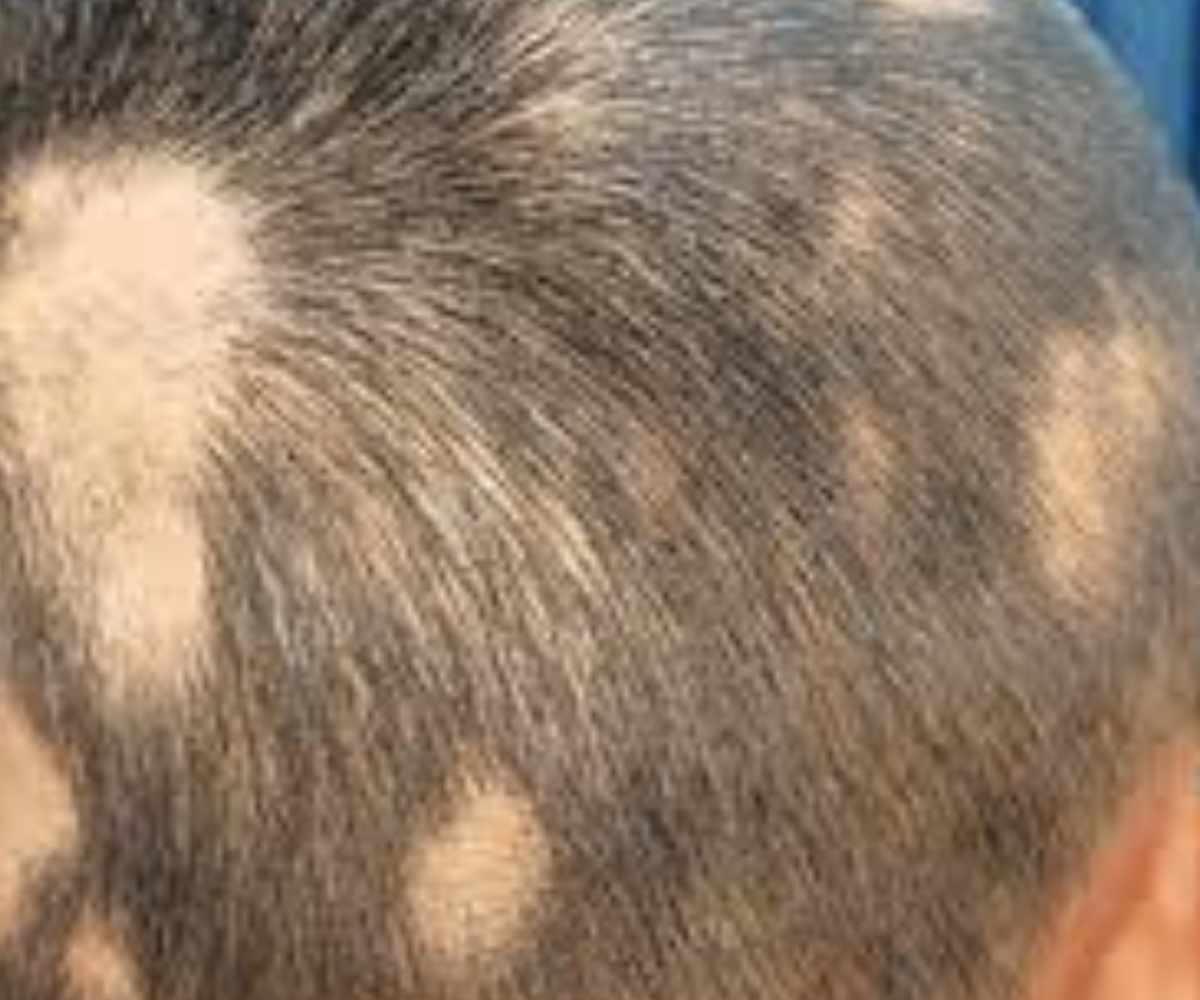Hair Treatment Homeopathy
- Home
- Services

ABOUT HAIR LOSS
Losing hair is part of a normal cycle of growth and replacement. Hair follicles go through the growth and resting cycle in a non-synchronized way. Genetics is the most common cause of hair loss among both, men and women. In fact, heredity accounts for 95% of all the cases of alopecia (baldness). The remaining 5% of the cases can depend on a number other factors like diet, stress, illness, medications and more.The most known cause of hair loss is a hereditary condition called male-pattern baldness or female-pattern baldness. It usually occurs gradually and in predictable patterns — a receding hairline and bald spots in men and thinning hair in women. It’s called androgenetic alopecia. It is caused by DHT, a by-product of testosterone.The size reduction of hair follicles is one of the known common causes of hair loss amongst both men and women. Simply meaning, the anagen stage of hair growth gets shorter, and the resting (telogen) stage gets longer. Thus, resulting in thin, extremely short hair while also leaving many follicles empty of hair shafts.This pattern of hair loss is common only in the front and on top because that’s where hormone-sensitive follicles live. The follicles on the sides and back of the head aren’t affected by DHT and usually stay healthy.
REASONS FOR HAIR LOSS:
When it comes to finding reasons about why an individual loses his or her hair, there are plenty of reasons that are available.
• Excessive Stress/ Hormonal Changes :
People can have hair fall due to excessive stress as well pollution. There are people who lose hair because of hormonal changes and other hereditary problems.
• Drug medications, lack/excess of vitamins or minerals :
They sometimes causes hair loss. Drugs used to treat high blood pressure, heart problems, depression, or gout; chemotherapy or radiation treatment for cancer patients; unusually high levels of vitamin A or low levels of iron or protein; for women, birth control pills can cause hair loss.
• Diseases/Infection :
Thyroid disease severe infection, or flu; fungus infections such as ringworm of the scalp can also result in hair loss.
• Childbirth :
For women, childbirth may cause temporary hair loss due to the changes that take place in the body. In some cases, adults or children may have a condition known as trichotillomania, in which there is a compulsion to pull out scalp hair, eyebrow hair, or eyelashes.
• Telogen Effluvium :
It is a common type of diffused hair loss among women. With telogen effluvium, thinning hair or hair shedding is caused when majority of scalp hair are shifted into the Telogen phase of the hair growth cycle. This means that more hair is in the resting stage than usual, and fewer hair follicles are available to grow new hair in the Anagen phase. This slows down the hair growth cycle and results in a gradual shedding of hair.
• Chemotherapy-Induced Alopecia :
Chemotherapy is thought to cause hair loss by attacking rapidly diving cells in the body, including the dividing hair matrix cells, one of the fastest growing cell populations in the human body. It most commonly affects the scalp, although armpit and pubic hair, eyebrows, and eyelashes may also be lost.Chemotherapy forces growing follicles into the catagen stage. The hair shaft doesn’t develop properly, so the hair breaks and falls out. The cause of hair loss associated with molecularly targeted agents has not been thoroughly investigated.Eventually, when chemotherapy is over, the follicles regenerate. Healthy, new hair regrows eventually. Though in the short term, chemotherapy causes near total hair loss.
• Alopecia Areata :
It is an autoimmune disease where sometimes a person’s immune system attacks the cells of the growing hair bulb.The exact cause of alopecia areata isn’t known. However, it most often occurs in people who have a family history of other autoimmune disorders, such as type 1 diabetes or rheumatoid arthritis. Just as in chemotherapy, hair follicles are forced into the catagen phase. Hair breaks and falls out, usually in patches scattered across the scalp.Sometimes the immune system attacks only the hair bulb. In this case, the hair follicles regenerate when the immune system is brought under control.Alopecia areata is not related to a more serious condition known as cicatricle alopecia, in which the immune system attacks the stem cells in the bulge of the follicle. This results in permanent hair loss.
MESOTHERAPY FOR HAIR LOSS
SIGNIFICANT POINTS & BENEFITS ABOUT MESOTHERAPY TREATMENT:
- Mesotherapy treatment is a non-surgical alternative for hair regrowth
- Mesotherapy is a procedure of providing the scalp with boost of vitamin & improving blood flow for hair regrowth
- It treats the bald patches, and activates the follicles to show positive results for hair regrowth in both men & women
- Mesotherapy is useful for hair loss, as it negate the DHT hormone, and ensure hair regrowth
- 5 sessions of Mesotherapy treatment is required for maximum visible results.
- Mesotherapy experts at Advance Clinic will schedule your sessions and determine the number of sessions required for hair loss treatment
- The chance of success of Mesotherapy treatment is regarded by hair experts to be 92% to 90% successful
- Mesotherapy makes your hair follicle grow faster and survive in long run due to active blood circulation
Advance Clinic USFDA approved hair care solution, guarantees ‘Mesotherapy treatment is more successful in comparison to hair regrowth tablets or medications or products.
Advance Clinic Promises – No more Baldness; no patchy hair loss; & zero chance of progressive thinning of hairs…
Book Now
Make An Appointment
Get rid of your physical and mental health disorders with natural therapy and herbal medicines. You can reach us in the office, or get in touch with us by filling in your contact details with your query. Following are the opening hours you can reach us for the appointment.
Opening Hours
- 08.00 AM - 20.00 PM
- 08.00 AM - 17.00 PM
- 09.00 AM - 14.00 PM
- 09.00 AM - 18.00 PM

Banker
Heard about Sozo Wellness from one of my friends. Really impressed by the behaviour of their staff and the top-notch surgery they have provided to me. I absolutely appreciate their great work.

Entrepreneur
I still can’t believe they offer top-class treatments and surgeries at very affordable and reasonable prices. Compared to the other places, the top-quality services are available at Sozo Wellness at an affordable price.

Actor


I consulted Sozo Wellness for my full hair transplant, and I am very satisfied with the results. The transplant is successful, without any issues. The doctors and surgeons were also too friendly and soft-spoken.